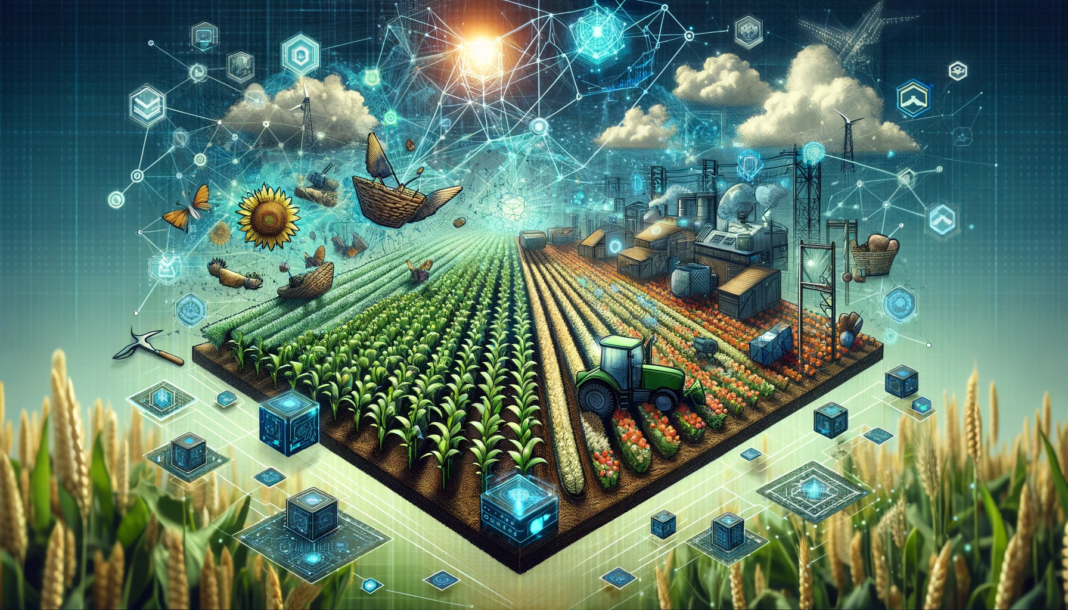In recent years, blockchain technology has transcended beyond its initial financial applications to revolutionize various industries, including agriculture. This technology offers transformative solutions for enhancing traceability, efficiency, and sustainability in farming practices and supply chains.
One of the most significant impacts of blockchain in agriculture is its ability to provide unprecedented traceability. With blockchain, every step of a product’s journey from farm to table can be recorded and verified. This includes data on the origin of seeds, farming practices, harvesting, processing, and distribution. Such transparency not only boosts consumer confidence but also helps in quickly pinpointing issues in the supply chain, enhancing food safety.
Blockchain optimizes agricultural operations by streamlining supply chain processes. By automating transactions and reducing the need for intermediaries, blockchain can significantly lower transaction costs and time delays. Smart contracts, self-executing contracts with the terms directly written into code, can automate payments and agreements based on the fulfillment of predefined conditions, further enhancing operational efficiency.
Blockchain’s immutable ledger ensures that data once entered cannot be altered, providing a reliable and tamper-proof record. This feature is vital for quality assurance in agriculture, enabling stakeholders to verify the authenticity of organic or fair-trade certifications and ensuring compliance with various standards and regulations.
Blockchain technology holds immense potential for small-scale farmers. It can provide them with better access to markets, transparent pricing information, and the ability to prove the quality of their produce. Moreover, blockchain platforms can facilitate access to financial services like credit and insurance, which are often challenging for small-scale farmers to obtain.
Blockchain can play a crucial role in promoting sustainable and ethical farming practices. By providing transparent data on farming methods and supply chains, it can help in enforcing environmental standards and ethical practices, contributing to more sustainable agriculture globally.
While the potential of blockchain in agriculture is immense, challenges remain. These include the need for technological infrastructure, digital literacy among farmers, and integrating blockchain solutions with existing agricultural practices. Overcoming these challenges requires collaborative efforts from technology providers, governments, and agricultural stakeholders.
As blockchain technology continues to evolve, its application in agriculture is expected to grow, offering more advanced solutions for traceability, efficiency, and sustainability. The future of agriculture with blockchain looks promising, with the potential to significantly transform how we grow, distribute, and consume food.
Blockchain technology in agriculture represents a leap forward in ensuring food safety, enhancing supply chain efficiency, and promoting sustainable practices. It marks a significant shift towards a more transparent, efficient, and consumer-centric agricultural system.




